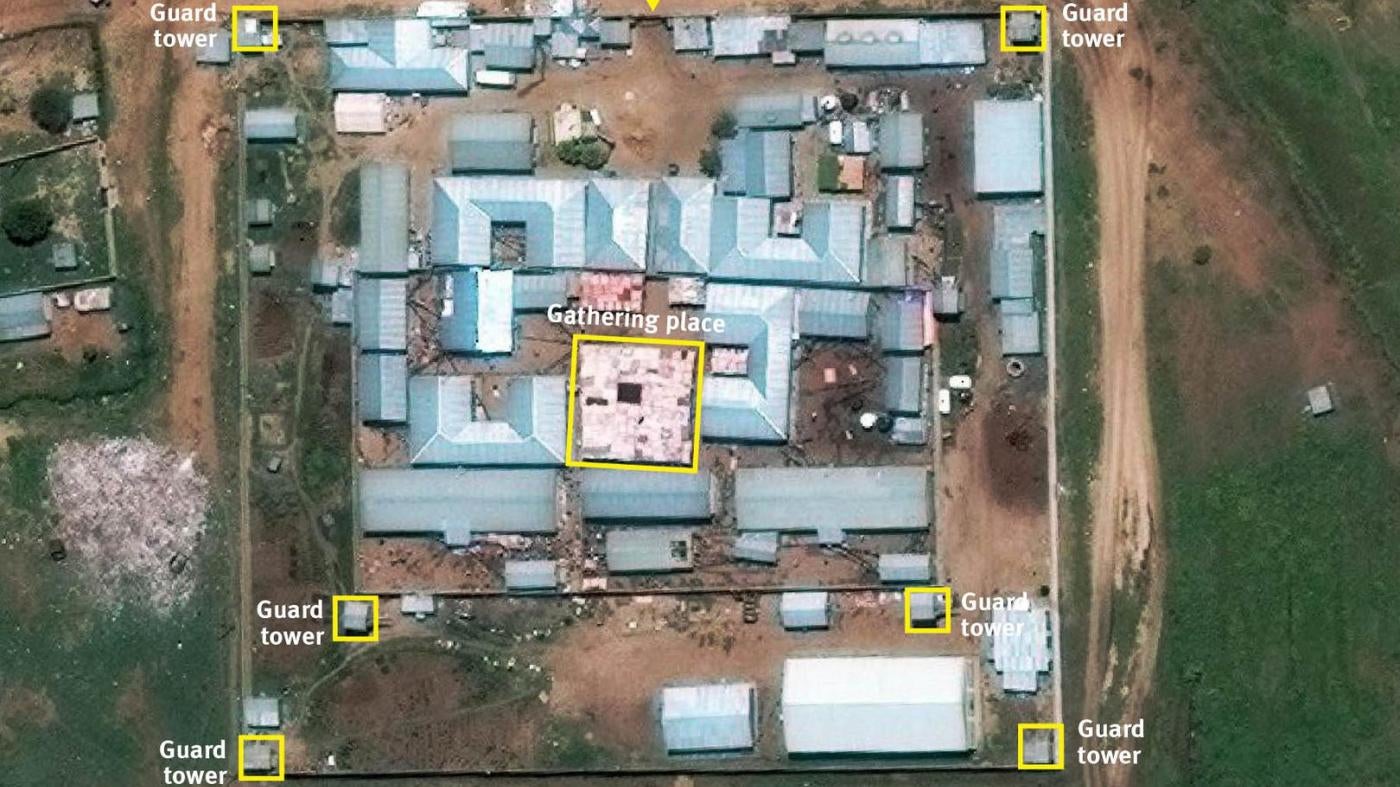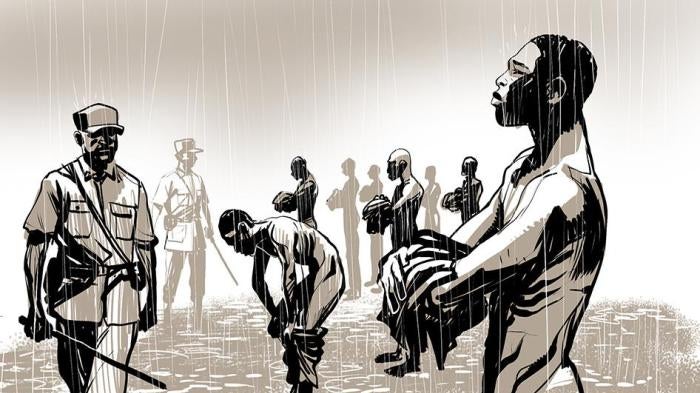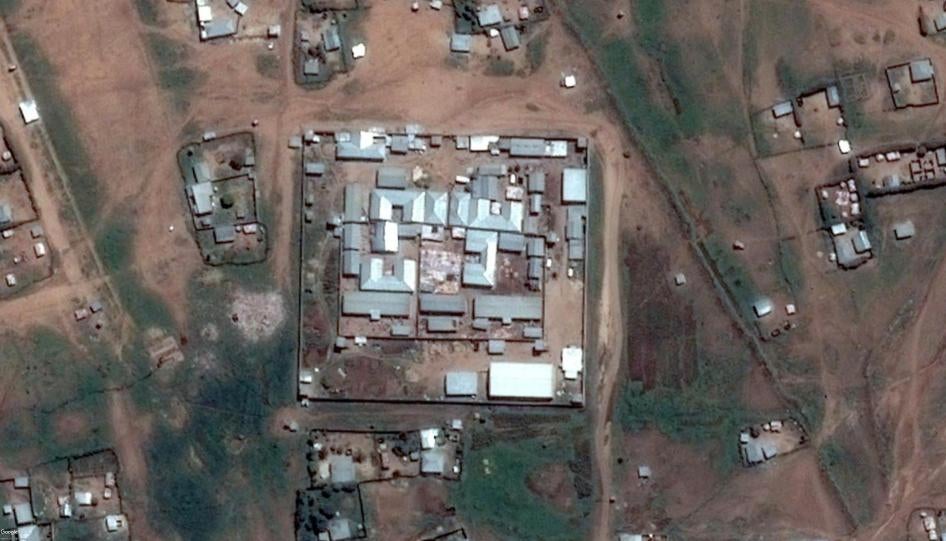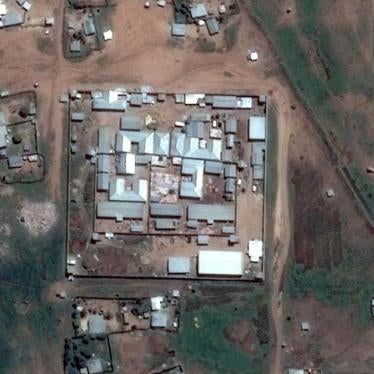Why did you focus on Jail Ogaden?
We have researched human rights issues in Ethiopia’s Somali Region for a long time. We released a report in 2008 showing how the military in the Somali region of Ethiopia displaced thousands of people and destroyed their homes. Many were detained and tortured, and even executed. Those who suffered were perceived to be sympathetic to the Ogaden National Liberation Front (ONLF), an armed opposition group in the region.
We continued to receive similar reports of brutality, this time by the Liyu police, a brutal paramilitary force who report to the Somali Region’s president. We focused on Jail Ogaden because that is the main detention center where people suspected of supporting the ONLF—including those accused of giving them food, information, or shelter-- are detained. It is rare that any formal charges are brought against them. While torture is common country-wide, the scale of abuse that each person in Jail Ogaden described warranted more in-depth research.
Ethiopia does not allow rights groups or press to research allegations against the government. How did you collect and verify this information?
We set out to interview those directly affected. We spoke to former prisoners, prison guards, and former government officials who were involved in these arrests. Some were interviewed inside Ethiopia, but most of the victims we interviewed now live outside the country. We interviewed people living in exile in about 10 countries across the world. They left because you are never really free once you are perceived to be a supporter of the ONLF. You are in constant risk of arrest or persecution.
The Somali region president, Abdi Mohamed Omar, commonly known as Abdi Illey, controls everything in the Somali Region, but his intolerance for dissent extends far beyond the region. In the past, there have been protests against him in Kenya, the United States, Australia and Europe. Relatives of some of the protesters were tracked down in Ethiopia and harassed, arrested, and beaten to silence their family members outside of Ethiopia. Others have had family members targeted because of their social media posts. So it was more difficult than I expected to get anyone to speak out about the suffering they endured. The fear to speak out is real and understandable.
Some of the torture and abuse was carried out in front of prison population, though, which provided opportunities to corroborate many of the abuses prisoners told us about.
With most victims fearing for their lives, who else was willing to speak to you?
We spoke to some former government officials, including former Liyu police officers, who had left the country. Some officials who are still working for the government spoke to us off the record as they remain in Ethiopia. I appreciate that they took a great deal of risk to do that. From conversations with them, I feel they understand that the widespread mistreatment of citizens in Jail Ogaden was wrong but many feel disempowered to do anything about it as long as Abdi Illey is in control.
One of the most powerful pieces of evidence that we got was the self-evaluation of Jail Ogaden prison officials. This particular evaluation was recorded on video in 2011 because Somali region President Abdi Illey was out of the country at the time and wanted to see it. The evaluation lasted 11 days and the footage runs for 25 hours.
On the video, we saw several prison guards confessing to torturing and raping prisoners.
We got the video from a former advisor to the Somali Region president who has since fled the country and now lives in Sweden.
Did you ever want to give up on this work? What kept you going?
The Somali region is the most secretive in Ethiopia and does not get much attention locally or internationally. Many of the most egregious abuses in Ethiopia occur there, and there is little understanding of what happens there, even among other Ethiopians.
When we decided to work on this, we knew it would be hard to get information. Once you sit down and hear people tell their stories, you hear how they feel the international community has just abandoned them. We hope this report will bring more attention to their issues.
More personally, I became a father, last year. One of the things that came up during interviews is how women gave birth in Jail Ogaden. They said they had no access to any medical help and many die during childbirth. Many of these children grow up in the horrible conditions in the jail. When the work was challenging to continue, I think of my son and how his life would be different if he had been born in Jail Ogaden like so many others.
Could you tell me more about who you spoke with?
We spoke to 70 people who are former detainees at Jail Ogaden. I remember one young man in his early twenties who told me about his experience at the jail. He had moved from his small village in Deghabhur, the heart of the conflict area, to Jijiga to pursue education. He stayed with his aunt. One night as he walked home from school, he was arrested by the Liyu police. They took him to Jail Ogaden where he spent two years. He was beaten badly and stayed in solitary confinement for six months. He saw no one except the people who came to beat him.
He was accused of supporting the ONLF, a group he knew little about. They kept beating him and asking him if he had delivered food and money to the ONLF. Since he did not give them satisfactory answers, they kept beating him. Sometimes they tied his hands and feet together behind his back and laid him out in the sun for hours. He was often taken to Jijiga’s water reservoir on the edge of town and plunged in the water until he was just about to suffocate then pulled out again. They did this repeatedly. When he was held in solitary confinement, the room had a high roof but narrow walls, so he could not stretch out his body and lie down, instead he just sat in an awkward, uncomfortable position even when he needed to sleep.
Upon his release, this young man fled to Europe where he is now studying a finance course. His body is covered in torture marks and he wonders why he was subjected to such treatment.
The Somali region government claims that it is a hub for development bursting with opportunities for investment. The marks on his body are a daily reminder of his different reality.
There is so much repression in Ethiopia. Just look at the Oromo protests the last several years. But there is now hope because the new prime minister is lauded as progressive. How should the new administration handle this issue?
The paramilitary Liyu police, who are involved in torture in Jail Ogaden, are alleged to have brutally attacked villages inside Oromia region in 2016. By the end of 2017, over 1 million people had been displaced by insecurity there. That was the first time Ethiopia’s broader population began to hear stories of Liyu police abuses, but Ethiopian Somalis had been brutalized by that force for a decade.
For all the talk of reform by the new prime minister, so far there has been little discussion on reform of security forces or holding officials to account for torture. It is an opportunity for him to move beyond the rhetoric and show that what happened in Jail Ogaden is punishable, and that Ethiopians deserve justice. It will send an important message to security forces around the country that torture will no longer be tolerated.
This is the time to speak about this, to stop the Liyu police, and show the international community that even powerful people like the Somali president or the head of the Liyu police, Abdirahman Labagole, are not above the law.
This interview has been edited and condensed.






